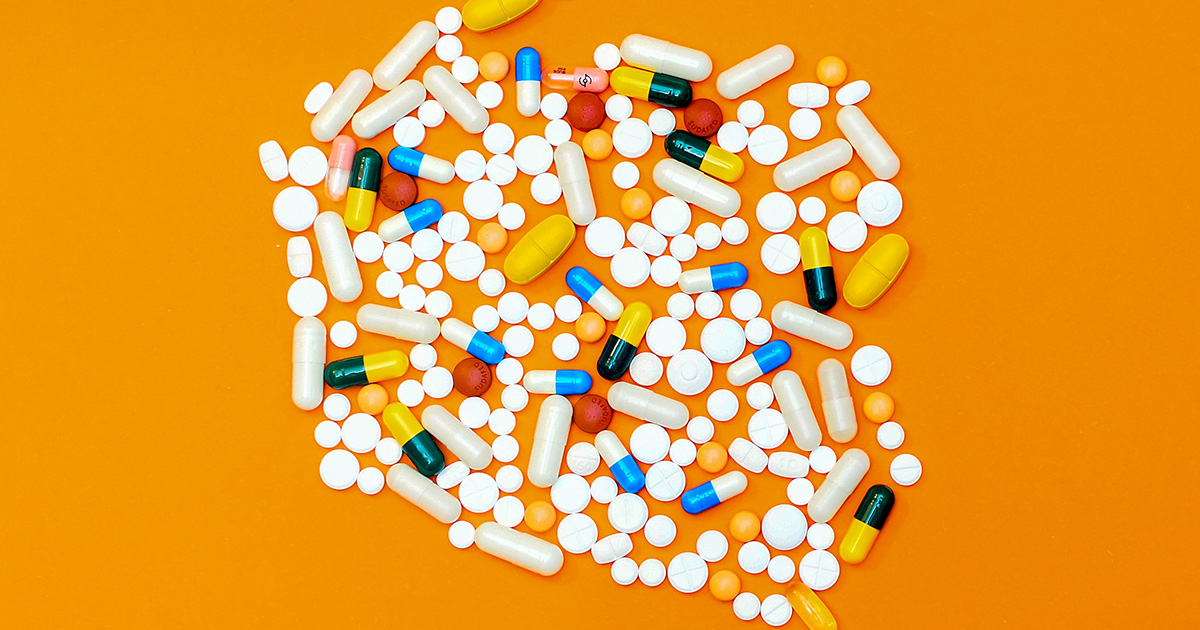How Do Medications Affect the Gastrointestinal System?
Medications can have many different effects on the gut. Some medications can irritate the gut, while others can cause inflammation.4 Medications can also affect gut bacteria, leading to gut health problems. This is why many people ask, “what are the symptoms of drug toxicity in the gastrointestinal tract?”
Some of the most common ways that medications affect the gut include:
1. Leaky Gut
Our stomachs have extensive interior lining. Actually, we have more than 4,000 square feet of surface area in our stomachs. Intestinal lining forms a barrier of protection and controls what is absorbed into the blood. However, an unhealthy or “leaky gut” may have large tears, holes, and cracks, which allows food and toxins to penetrate the tissue. Inflammation or changes to the gut’s bacteria may result, leading to serious digestive problems or worse.
2. Diarrhea
Many medications, including antibiotics, anti-inflammatory drugs, and laxatives, can cause diarrhea.5 This is because they disrupt the balance of bacteria in the gut, which can lead to an overgrowth of harmful bacteria. Chronic diarrhea can lead to dehydration and nutrient deficiencies that make it difficult to maintain good health.
3. Constipation
Medications such as antidepressants, anti-anxiety drugs, and pain medications can cause constipation. This is because they can slow down the movement of food through the intestines. This can lead to a buildup of waste in the gut, which can cause discomfort and health problems.
4. Nausea and vomiting
Many medications, including chemotherapy drugs and antibiotics, can cause nausea and vomiting. This is because they can irritate the stomach and esophagus. Nausea and vomiting can lead to dehydration and malnutrition.
5. Heartburn
Many medications, including pain medications, antihistamines, and steroids, can cause heartburn. This is because they relax the muscles in the stomach and esophagus, allowing stomach acid to leak up into the esophagus. This can lead to a burning sensation in the chest and throat.
6. Malnourishment
Some medications can cause malnutrition by interfering with the absorption of nutrients from food. This can lead to a variety of health problems, including abnormal weight loss, weakness, and hair loss. As you can see, medications can have several different effects on the gut. It is important to be aware of what drugs affect the digestive system and their effects so that you can take steps to protect your gut health.
What Drugs Commonly Cause G.I. Issues?
There are a number of different drugs that can cause gut health problems. Some of the most common include:
Antibiotics
Antibiotics are drugs that are used to treat infections, and they work by killing bacteria. However, antibiotics can also kill the beneficial bacteria in the gut, which can lead to diarrhea and other gut health problems.
Nonsteroidal anti-inflammatory drugs (NSAIDs)
NSAIDs are drugs that are used to treat pain and inflammation. They work by blocking the production of prostaglandins, which are chemicals that cause pain and inflammation. However, NSAIDs can also irritate the gut, which can lead to diarrhea and other gut health problems.6
Laxatives
Laxatives are drugs that are used to treat constipation. They work by stimulating the muscles in the intestine, which causes them to contract and push the waste products out of the body. However, laxatives can also irritate the gut and cause diarrhea.
Chemotherapy drugs
Chemotherapy drugs are drugs that are used to treat cancer. They work by killing cancer cells. However, chemotherapy drugs can also damage the healthy cells in the gut, which can lead to nausea, vomiting, and other gut health issues.
Antidepressants
Antidepressants are drugs that are used to treat depression, and they work by increasing the levels of serotonin in the brain. However, antidepressants can also disrupt the balance of bacteria in the gut, leading to a host of gut issues, including diarrhea.7
Anti-anxiety drugs
Anti-anxiety drugs are medications that are used to treat anxiety disorders. They work by increasing the levels of serotonin in the brain. However, anti-anxiety drugs can also disrupt the balance of bacteria in the gut, which can lead to diarrhea and other gut health problems.8
Pain medications
Pain medications are used to treat pain, and they work by blocking the transmission of pain signals from the brain to the body. However, pain medications can also irritate the gut and cause diarrhea.9
How Can I Prevent Gut Health Problems From Medications?
There are a few things that you can do to help protect your gut health from the negative effects of medications:
Talk to your doctor. Your healthcare provider will know about the potential gut health effects of any medications that you are taking. This will help you be aware of the risks and take steps to protect your gut health.
Follow the instructions on the medication label carefully. This will help minimize the gut health risks associated with the medication.
Drink plenty of water. Stay hydrated with plenty of water and other liquids. This will help flush out any harmful bacteria that may be causing problems.
Eat a healthy diet. This can provide your gut with the nutrients it needs to stay healthy. Strive to eat five to seven servings of fruits and vegetables per day. This will give your gut the fiber and nutrients it needs to stay healthy and function as normal.
Avoid processed foods. These types of foods are high in unhealthy fats and chemicals that can harm the gut.
Limit alcohol intake. Limit the amount of alcohol you drink, as excessive alcohol consumption can damage the gut and lead to health problems.
Exercise regularly to keep your gut healthy and functioning properly. This can include aerobic exercise, such as running or biking, and strength training.
Ensure you get enough quality rest to allow your gut to rest and repair itself. Most adults need seven to eight hours of sleep per night, but everyone’s needs for rest vary. Listen to your body.
Use a probiotic. This can help maintain the balance of bacteria in your gut.10 This can help protect your gut health from the negative effects of medications. The best probiotic for this is a high-quality, multi-strain probiotic. This is because it will contain a variety of probiotic strains, which will help maintain the balance of bacteria in your gut.
Protect Your Gut From Side Effects With Natural Alternatives
Many different medications can have negative effects on gut health. However, there are natural alternatives that can help protect your gut from the side effects of medications. Many people are already familiar with using various alternative sources of medications, like herbs and supplements. Learn more about how you can take better control of your G.I. health and combat any gut health problems caused by medications.











